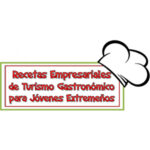Description
Competitive intelligence applied to inland tourism. It made it possible to obtain detailed data on the tourism market and its consumption trend in Extremadura, in the rural area.
DATATUR is competitive intelligence applied to inland tourism. This analysis tool made it possible to obtain detailed data on the tourism market and its consumption trend in Extremadura.
The project was framed within the Spanish National Tourism Plan, Horizon 2020.
DATATUR obtained information from 60% of the rural accommodation connected to booking centres, to obtain monthly data on market valuation, consumer habits, destination perception, and to provide accommodation with useful information for decision-making.
It allowed entrepreneurs, hotel associations, economic agents involved in the sector, as well as users of rural tourism establishments to have access to graphs and reports on occupancy levels, bookings, seasons and prices, and user satisfaction.
Budget:
67.000 €Financed by:
The Ministry of Industry, Tourism and Trade and AEI Tourism Cluster of ExtremaduraObjectives
The project will allow:
- To have macroeconomic information on the supply and demand of the sector.
- To identify points of action and coordination that adapt the supply of rural tourism to the requirements of current demand, thus increasing the competitiveness of the sub-sector.
- To have updated information on the main variables of the supply and demand of rural tourism in Spain, specifically in Extremadura.
- To analyse the socio-economic profile of visitors: age, sex, profession, motivations, average duration, average expenditure, type of trip, etc.
- To define the demands and expectations of rural tourism users.
- Identify the possible seasonality of demand.
- To evaluate the quality of rural tourism in Spain as a tourist destination, as well as the levels of visitor satisfaction in the field of tourist and municipal services in general.
- Establish comparisons between possible competing destinations to support decision-making by the main agents involved.



